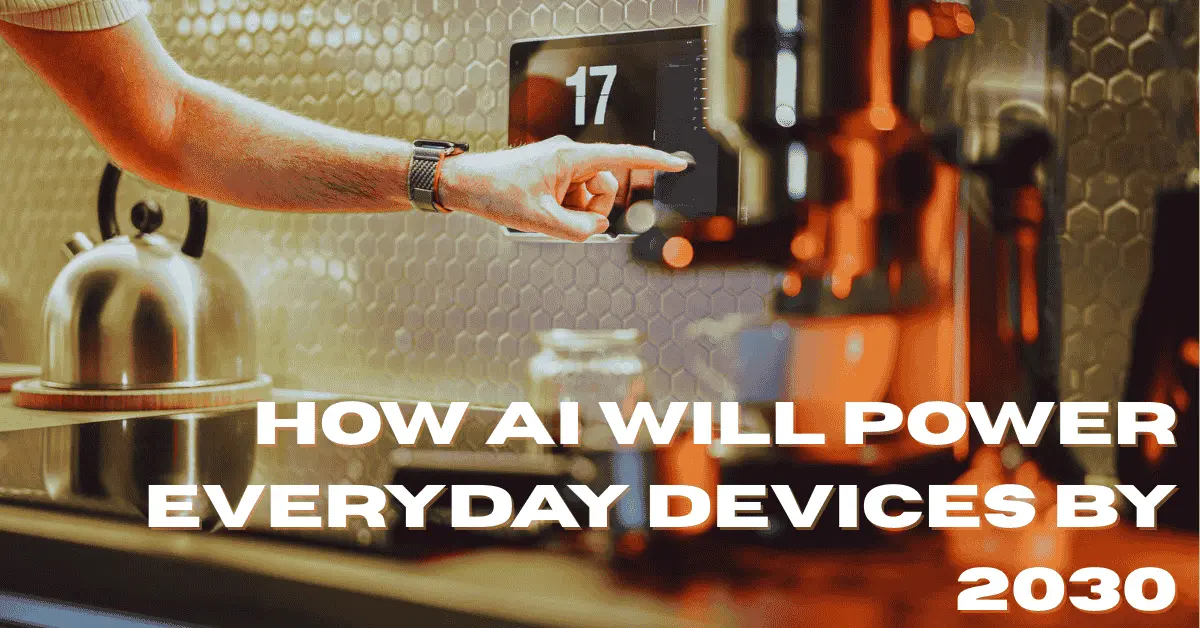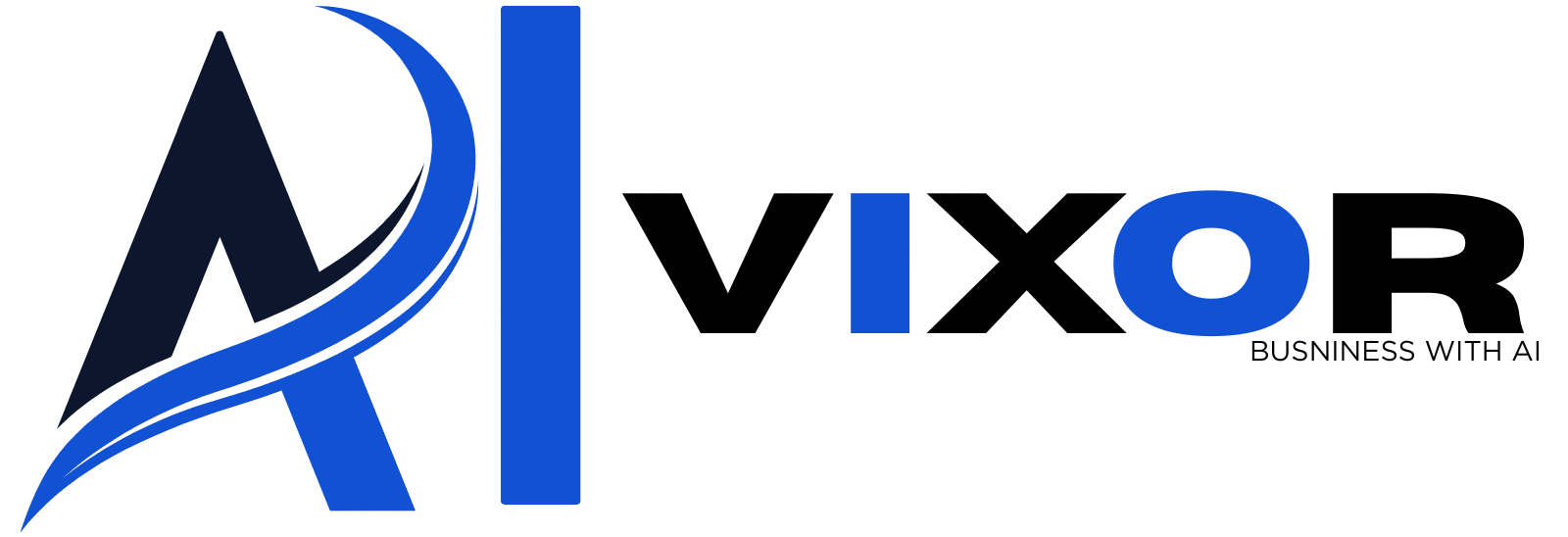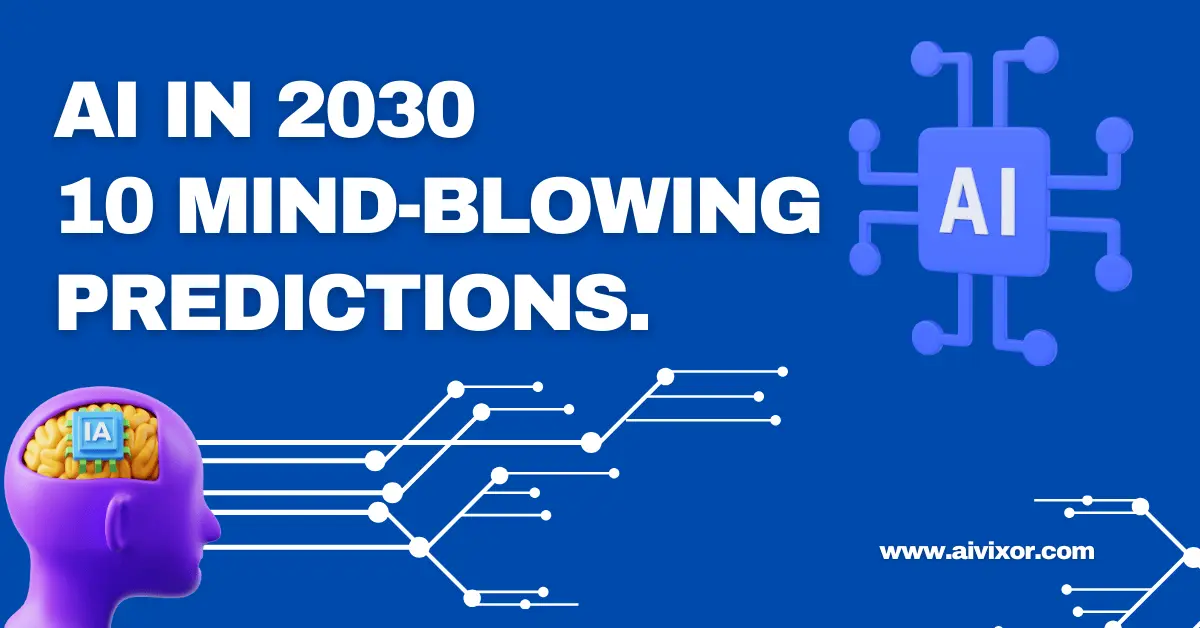Table of Contents
ToggleFuture of AI in 2030: 10 Predictions That Will Reshape the World
Artificial Intelligence has already made impressive strides in image generation, natural language processing, video creation, and healthcare. But what will AI be capable of by 2030? Here are 10 promising predictions for the future of AI that could transform every aspect of our lives.
To learn more about the future of AI, read Forbes’ insightful article on AI Predictions for 2030.
1. Humanlike AI In 2030

By 2030, experts predict that AI will reach intelligence levels comparable to humans. This breakthrough will allow machines to emulate human-like thinking and decision-making.
Sectors like healthcare, finance, and manufacturing will undergo significant transformations.
AI could assist doctors in diagnosing diseases as accurately as specialists and help financial analysts make better predictions. Even in the arts, AI-generated music, literature, and design could captivate global audiences.
2. Increased Human-AI Synergy
The partnership between humans and AI is expected to grow stronger by 2030. AI will go beyond being a tool to becoming an assistant, tutor, counselor, and even a companion.
In healthcare, AI could improve diagnoses; in education, it could personalize learning; in entertainment, it could create tailored experiences; and in customer service, it could offer instant support.
This evolution means AI will be deeply integrated into daily life—not just as a machine, but as a supportive partner.
3. The Rise of the Metaverse
What was once just a concept—the metaverse—will become reality by 2030. This virtual universe will allow people to socialize, work, and learn in fully immersive digital environments.
AI will power these experiences, making virtual worlds more realistic and personalized. From virtual concerts and classrooms to digital workspaces, the metaverse will redefine online interaction.
4. AI in Everyday Devices

By 2030, AI will be embedded into nearly all devices—from home appliances to wearables and drones.
Your coffee machine might start brewing as you enter the kitchen, and your thermostat could adjust automatically based on your preferences. Wearable devices will offer real-time health feedback, and autonomous robots and drones will assist with deliveries or healthcare tasks.
This will make life more convenient, connected, and efficient.
5. Advancements in Autonomous Vehicles
AI will transform the transportation industry through fully autonomous vehicles. Companies like Tesla are leading the way toward self-driving cars that could navigate traffic without human input.
These vehicles will reduce traffic congestion, improve safety, and transform city infrastructure. Logistics and last-mile delivery services will also become faster and more efficient.
For more on AI and its impact on various industries, check out our other articles like How AI is Changing the World in 2025 and AI Tools for Social Media Growth in 2025.
6. Massive Job Loss
According to estimates, AI could displace nearly 1 billion jobs by 2030. Roles in transportation, manufacturing, and even law may be heavily automated.
To address this shift, large-scale retraining programs and new government policies will be needed. While some people will create and control AI, others may become its workforce—highlighting the risk of widening global inequality.
7. Enhanced Medical Treatment
AI will revolutionize healthcare by offering personalized treatments, early disease detection, and precise diagnoses. It will analyze vast datasets to spot medical patterns and enable faster interventions.
Precision medicine—tailored to individual genetics—will become more common. AI will also speed up drug discovery, helping develop new medications quickly and efficiently.
8. Biometric Technology
By 2030, biometric authentication will become widespread. Instead of passwords, facial recognition, iris scans, or fingerprint sensors will handle security.
Wearables like smartwatches will monitor health through biometric signals. Privacy will be enhanced through encryption, while AI will interpret biometric data to provide smarter healthcare and security.
9. The Rise of Deepfakes
Deepfakes will become more realistic and harder to detect, posing threats to information integrity. Detecting fake content will become critical, requiring advanced verification tools and regulatory oversight.
Ethical standards and international collaboration will be essential to preserve trust in digital content.
10. Emotion Recognition
AI will become capable of understanding human emotions by analyzing facial expressions, tone of voice, and body language. Emotion-aware AI could enhance customer service, healthcare, and education.
By 2030, these systems may react to our emotions in real-time, making interactions with technology more human and empathetic.
Final Thoughts
The world of Artificial Intelligence is evolving at an unprecedented rate. By 2030, the way we live, work, and interact with technology will be drastically reshaped by AI advancements. From human-like decision-making to seamless collaboration between humans and machines, the future promises an exciting blend of innovation and transformation.
As AI continues to integrate into various aspects of our daily lives, it will not only revolutionize industries but also create new opportunities and challenges. Embracing these changes will require us to adapt, learn, and grow alongside the technologies that are shaping the future.
Thank You for Visiting AI Vixor!
At AI Vixor, we strive to bring you the latest insights on the ever-evolving world of Artificial Intelligence. We hope this article has helped you understand some of the exciting developments to look forward to by 2030.
If you’re passionate about staying ahead in the AI revolution, be sure to check out our other articles and join the AI Vixor community for more in-depth content and discussions!

